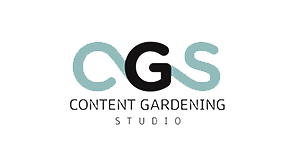In this article, we take a look at the 5 most important points to work on to improve the performance of your website or web application.
1. The speed at which your pages load
In general, 74% of Internet users leave a page that does not open on their computer browser within the first 5 seconds. 53% will skip the page and go to a competitor’s site if it doesn’t open within 3 seconds. The user experience is degraded and, in the process, your brand image is seriously affected.
As a result, all your marketing efforts will be in vain with a slow website, and your conversion rates are likely to stagnate or even fall.
Added to this is the fact that Google ranks page load speed as one of the main criteria for your natural referencing.
To remedy this, there are now tools available for testing and analysing your site. Such as Google PageSpeed Insights, which will also give you a list of actions to take to improve your score.

Image by Mohamed Hassan from Pixabay
2. The design of your site
Once potential customers can quickly access the content of your site, it’s a question of offering them the best possible user experience, and that starts with a design that’s adapted for optimal ergonomics.
The visual and functional aspects of the site will encourage the user to take action. So it’s important to adopt the right UX design codes to boost your site’s performance.

Image by Mohamed Hassan from Pixabay
3. The interactivity of your site
Digitalisation is dehumanising exchanges between customers and sellers. If you want your site to perform better and generate more conversions for your products or services, it’s essential to create a link between you and the user.
You can put in place interactive tools such as a chatbot, online satisfaction surveys, sharing buttons on social networks, etc.

Photo de Austin Distel sur Unsplash
4. SEO optimisation of the site
You need to feed Google’s algorithms with :
- keywords that match your audience’s search intentions and lexical field (carry out a semantic audit if necessary) ;
- Quality, relevant and informative content;
- optimisation of your site’s tree structure (silo and thematic clusters);
- structuring your content using the right tags and filling in the title tag and meta description;
- fine-tuning internal links and external links.

Photo de Christopher Gower sur Unsplash
5. The right choice of marketing strategy
There are many marketing techniques you can use to achieve success. Here are just a few of them:
- Content marketing: there’s nothing like blogs, videos or tutorials to provide visitors with relevant information and encourage them to buy;
- Marketing automation: this allows you to automate your marketing campaigns based on user behaviour. Software sends a more targeted and personalised e-mail to your visitors when they carry out specific actions;
- Social media marketing: promoting a website inevitably involves social networking. Publish on the social media that are most relevant to your business: Facebook, Instagram, TikTok, etc. The aim is to be present to generate as much traffic to your site as possible.

Photo de Campaign Creators sur Unsplash



